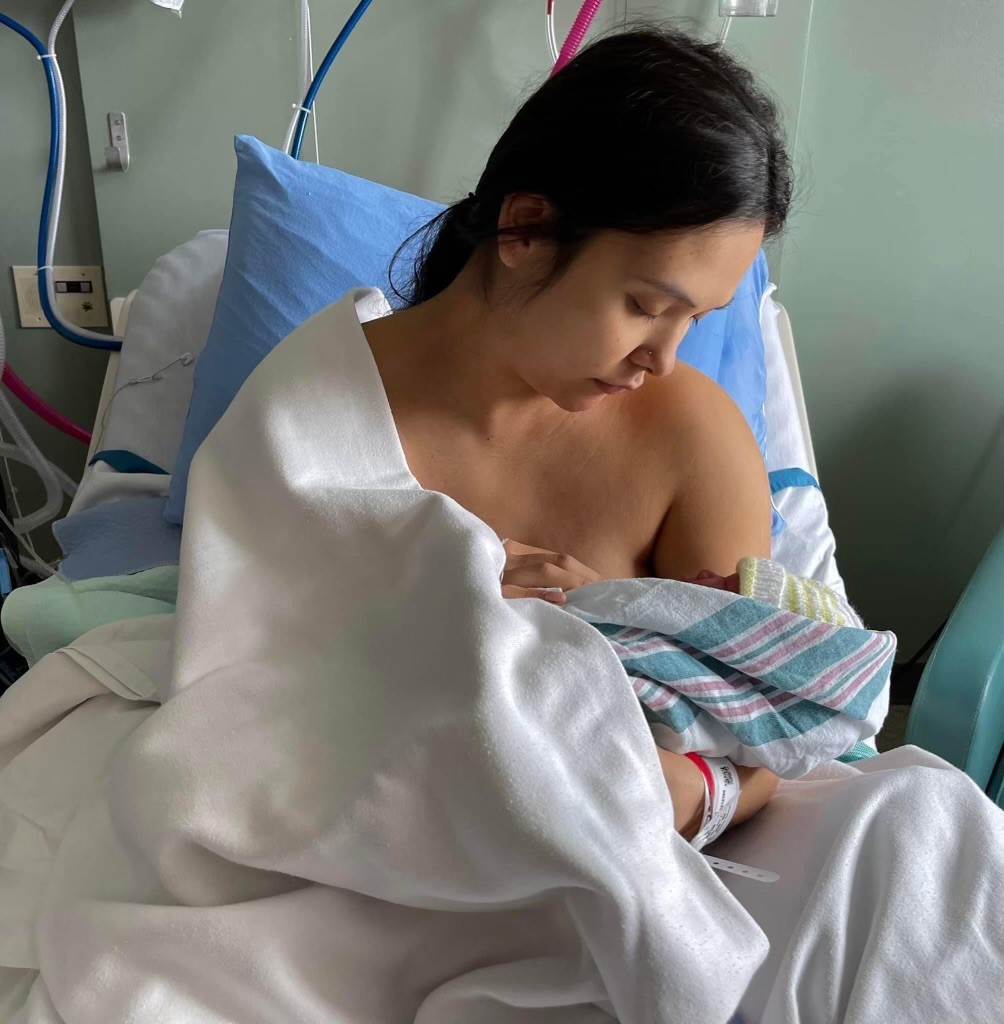
Nesting Doula Collective offers birthing support to people of colour
Doulas are an essential service that relies on unconditional funding to do its best work
Bringing new life into the world is a deeply spiritual experience for many. Tahia Ahmed has read duas (prayers) and passages from the Quran to soothe and comfort her Muslim clients during labour. Ahmed is a Bengali-Muslim doula and a collective member of the Nesting Doula Collective (NDC).
Doula care isn’t offered as part of BC’s healthcare system. But being optional doesn’t make it a luxury either. Imagine giving birth far away from home, in a place where most people don’t speak your language or practice your religion. This is the experience for many of NDC’s clients.
Families seek out NDC for birth care that will treat their cultural practices with respect and take into account how their experience with healthcare may be influenced by colonization and white supremacy. This offers a layer of safety and security during a vulnerable time in one’s life. NDC offers this on top of all the other reasons families work with a doula, such as advocating for you in the delivery room, helping you manage pain, and tracking your medical history and preferences. Doulas also continue to care for you after you leave the hospital. Many people who work with a doula during their pregnancy say that they couldn’t imagine going through it without the help of one.
Doulas need funding that gives them freedom
NDC relies on outside funding to support families at no cost. In 2022, NDC supported 70 families through pregnancy, birth or post-partum.
In Ahmed’s experience, a strong community is the most reliable funding. NDC is funded almost entirely by mutual aid donations, which has a different tone than charitable funding. Mutual aid donors usually expect to one day benefit from NDC’s services, whether as a parent or as general community members. Because of this, donations are made with trust and with the best interest of the organization at heart and, therefore, never tied to projects or specific conditions. This allows NDC to use the donations wherever they’re needed most.
NDC still accepts funding from charitable sources as long as there are no limitations on how it can use the funding. It accepted a LEVEL BIPOC Grant from Vancouver Foundation, which was offered as unconditional funding. “We want to see folks invest in community care with an understanding that caring for others ultimately benefits all of us,” says Ahmed, who explains that where government and healthcare systems fall short, community care fills the gap to increase support.
For many, doula care feels like an essential part of perinatal care. But Ahmed isn’t sure that government funding is the right way to ensure everyone receives access. She’s seen how public funding for other birth professions, like midwives, limited how they could support their patients. The government has also assumed that doulas were interchangeable with having a loved one present — this led to doulas needing to lobby to be allowed into delivery rooms as essential workers during the pandemic. As such, it feels unlikely that government policies will understand the full scope of a doula’s care work, which can extend to cooking, drawing baths, and educating clients and their support people.
Nesting Doula Collective helps people of colour take control of their health
NDC was created to meet the needs of people of colour from diverse cultural backgrounds. Doulas give people a way to take control of their health during pregnancy and birth. “Many of our clients need an advocate to amplify their consent or right to refuse in the birth room,” says Ahmed.
Many birthing traditions and knowledge have been lost since society turned pregnancy and birth into medical events inside hospitals and clinics. While it has improved mortality rates and made birth more physically safe, it has also come at the expense of emotional and spiritual safety in the experience. NDC seeks to restore these lost aspects of safety through its work. “When communities are conscious and aware of birth happening all around them, we take on the collective responsibility of keeping birthing people and their babies safe, nourished, housed, and supported.”

